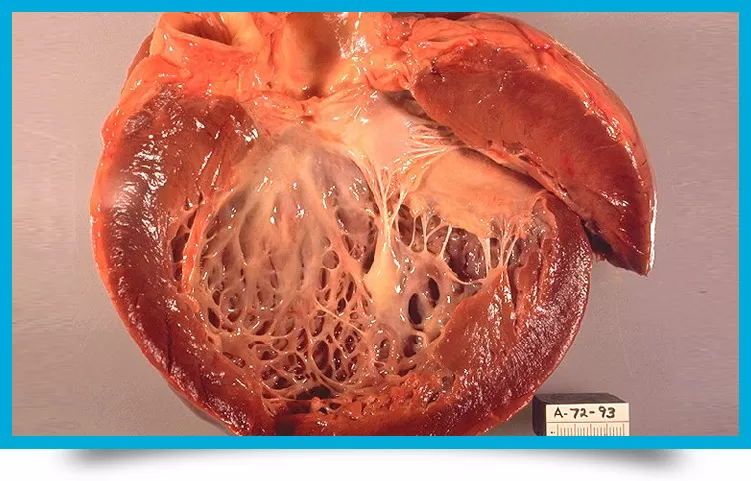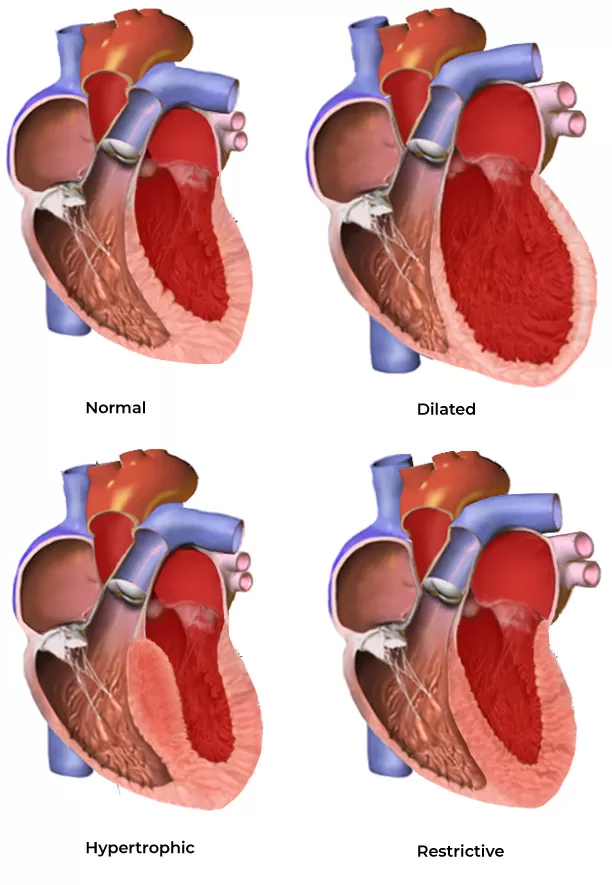Cardiomyopathy, or heart muscle disease, is a type of progressive heart disease in which the heart is abnormally enlarged, thickened, and/or stiffened. As a result, the heart muscle’s ability to pump blood is less efficient, often causing heart failure and the backup of blood into the lungs or rest of the body. The disease can also cause abnormal heart rhythms.

(Opened left ventricle showing thickening, dilatation, and subendocardial fibrosis noticeable as increased whiteness of the inside of the heart)
There might be no signs or symptoms in the early stages of cardiomyopathy. But as the condition advances, signs and symptoms usually appear, including:
Signs and symptoms tend to get worse unless treated. In some people, the condition worsens quickly; in others, it might not worsen for a long time.
See your doctor if you have one or more signs or symptoms associated with cardiomyopathy. Call your doctor if you have severe difficulty breathing, fainting or chest pain that lasts for more than a few minutes.Because some types of cardiomyopathy can be hereditary, if you have it your doctor might advise that your family members be checked.
Often the cause of the cardiomyopathy is unknown. In some people, however, it’s the result of another condition (acquired) or passed on from a parent (inherited). Contributing factors for acquired cardiomyopathy include:
There are three main types of cardiomyopathy:
The pumping ability of the ventricles may be normal, but it’s harder for the ventricles to get enough blood. With time, the heart can’t pump properly. This leads to heart failure.

There are a number of factors that can increase your risk of cardiomyopathy, including:
Cardiomyopathy can lead to other heart conditions, including:
You can’t reverse or cure cardiomyopathy, but you can control it with some of the following options: